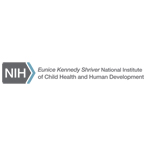Treatment for Common Sexually Transmitted Disease During Pregnancy Fails to Reduce the Likelihood of Premature Birth
Using the drug metronizadole to treat pregnant women who have the sexually transmitted disease trichomoniasis does not reduce the women's chances for giving birth prematurely, and may actually increase them, according to a study appearing in the August 16 New England Journal of Medicine.

 BACK TO TOP
BACK TO TOP